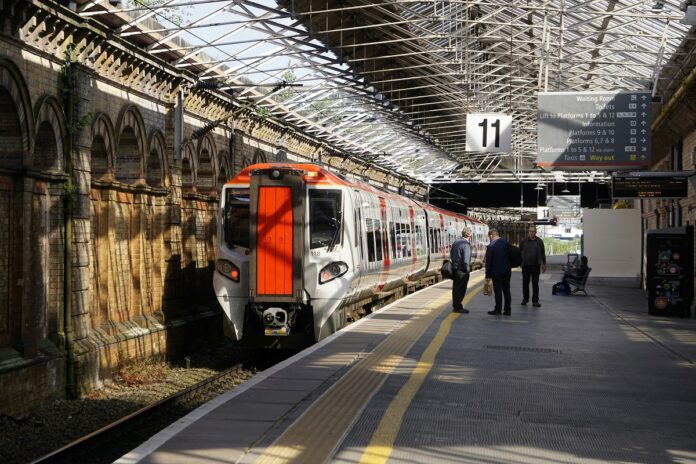Great Britain’s railway remains one of Europe’s safest, but significant challenges persist, particularly with record high cancellations and financial pressures on Network Rail. This is according to the Office of Rail and Road (ORR)’s annual reports, released today, Thursday 17th July.
While Network Rail has made commendable progress in areas such as overdue structure assessments and managing weather-related risks, these achievements come against a backdrop of focused regulatory attention.
Safety Performance Under Scrutiny
The ORR’s report assessed that Network Rail maintained good health and safety performance, with overall train accident risk broadly consistent with recent years. However, serious incidents continue to occur across the network, including 29 “high potential risk events,” predominantly at level crossings. The ORR has announced it will conduct a series of inspections across all Network Rail regions to assess the effectiveness of risk management at level crossings.
Furthermore, the passenger train collision incident at Talerddig in October, which tragically resulted in one passenger fatality and injuries to many others, was highlighted as particularly concerning given an increasing number of Signals Passed at Danger (SPAD) events across the industry. The ORR is also calling for a coordinated cross-industry focus to address the risk of train overspeeding.
Crucially, the rail regulator is urging the industry to maintain a strong focus on safety throughout the ongoing rail reform process. Richard Hines, HM Chief Inspector of Railways, emphasised the need for proactive risk management, clear accountability, and visible safety leadership at every level to ensure that health and safety remains not just a priority, but a guiding principle – “through every decision, in every part of the system.”
The ORR’s annual safety assessment also noted Network Rail’s good progress in addressing concerns about its management of structures, taking action on overdue assessments as required by an ORR intervention earlier this year. Progress is also being made to promote greater awareness and consistency in how the industry tests ‘reasonable practicability’ in health and safety decision-making. This work, initiated by an ORR report earlier this year, could reduce the need for potentially costly interventions in the future.
Record Cancellations and Performance Challenges
Passenger numbers continued to rise between April 2024 and March 2025, reaching 1.73 billion journeys, a 7% increase from the previous year. Punctuality remained largely stable, with 84% of passenger trains arriving within three minutes of their scheduled arrival, and Network Rail successfully reduced delays attributed to its operations. Scotland was the only part of Great Britain to meet its cancellations target.
However, cancellations reached record highs at 4.1% for April 2024 to March 2025, up from 3.8% the previous year, with train operator cancellations identified as the dominant factor. Network Rail missed its national targets for reliability and punctuality.
In its Wales & Western region, the ORR took enforcement action to secure better performance improvement plans, which has since led to improved train performance. Network Rail has also been responsive to the ORR’s challenges on performance in other regions, making good progress on many highlighted issues, including developing a stronger plan to improve performance in its Eastern region.
The ORR has also mandated that Network Rail accelerate its decisions on train operator access to the network. The company’s current short-term access rights process has been criticised for limiting the ability of train operators, particularly open access and freight operators, to plan and invest in rolling stock and train crew.
Efficiency Gains Mask Funding Gap
Network Rail delivered strong efficiency gains between April 2024 and March 2025, achieving £325 million in savings, surpassing its target by £62 million. However, a significant funding gap of £488 million remains for the company in England and Wales, which the ORR has instructed it to resolve.
Network Rail must also meticulously manage its delivery of core renewals, while mitigating inflationary pressures and cost overruns as much as possible. The ORR warns that if current cost pressures persist, the company may be compelled to reduce its delivery of renewals of railway infrastructure. This could lead to impacts on train cancellations and delays, for instance, by necessitating speed restrictions.
Network Rail’s five-year plan to 2029 places a heavier reliance on maintenance compared to its previous five-year plan, a consequence of funding constraints preventing full renewal of railway assets. The regulator emphasised that it will be closely monitoring the company’s maintenance delivery, which is deemed crucial for a reliable railway.
John Larkinson, Chief Executive of the ORR, said: “The mainline rail network is at a turning point. Rail reform presents an opportunity to do things differently, working better together to improve the experience of all rail users, but its full implementation is some years away and the issues we have raised will not be solved by rail reform alone. Overall Network Rail has performed well in a tight financial environment, but it will need to focus relentlessly on every aspect of how it plans and delivers, because there is little margin for error in its regulatory settlement.”
REPORT HUB
A Year in Rail and Track Ahead, April 2024 to March 2025
Annual assessment of Network Rail 2024 to 2025
Annual report of health and safety on Britain’s railways 2024 to 2025





